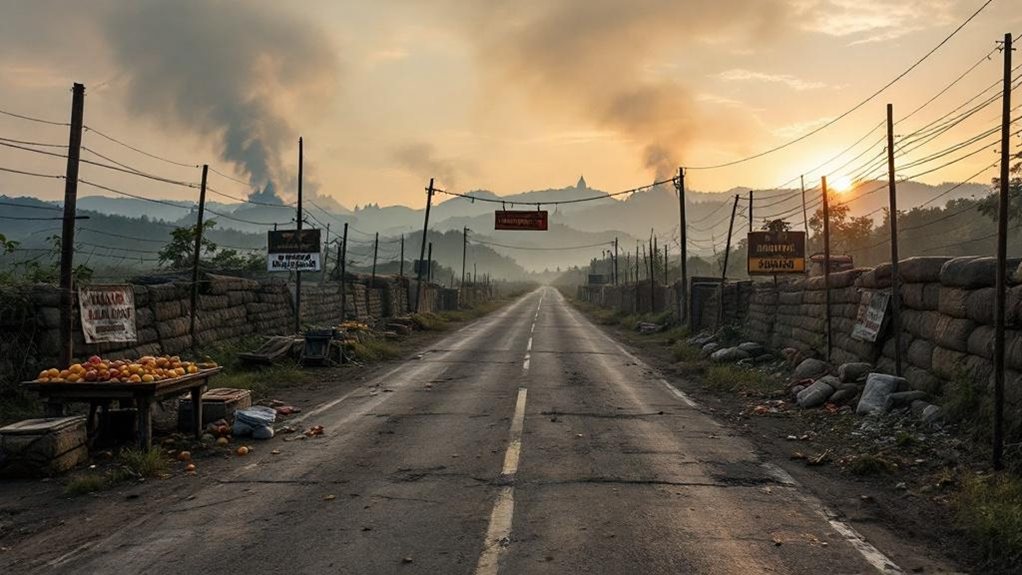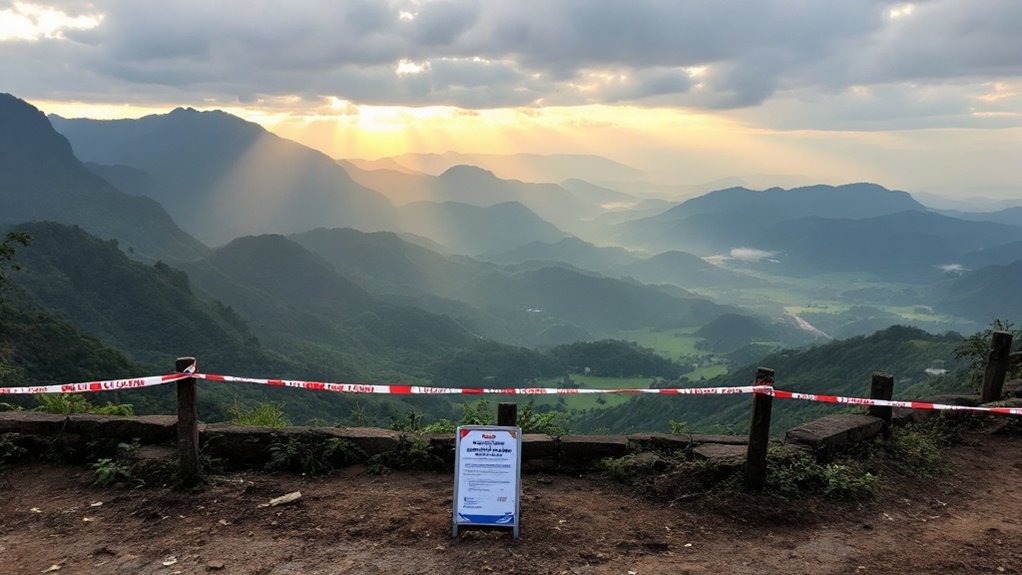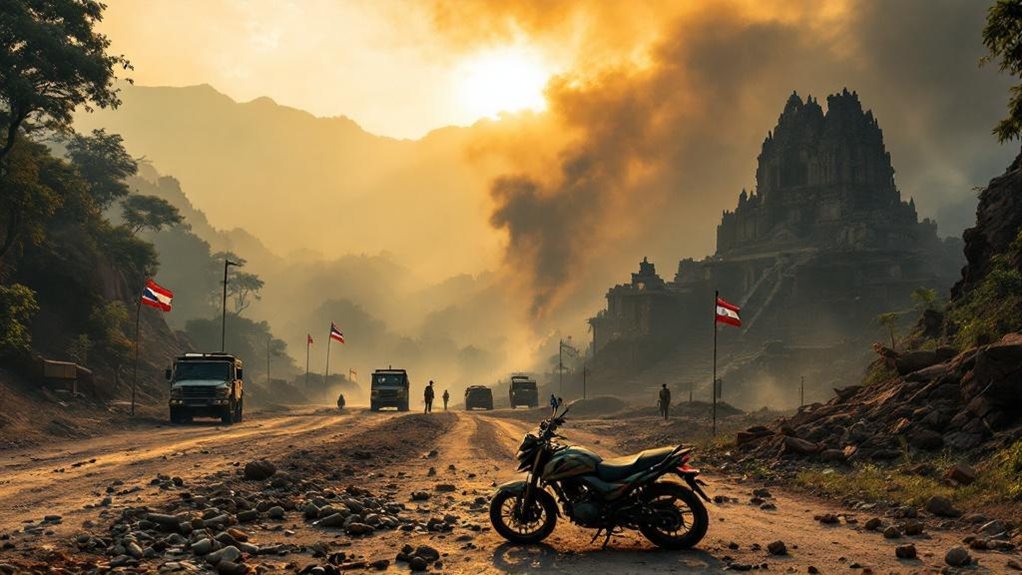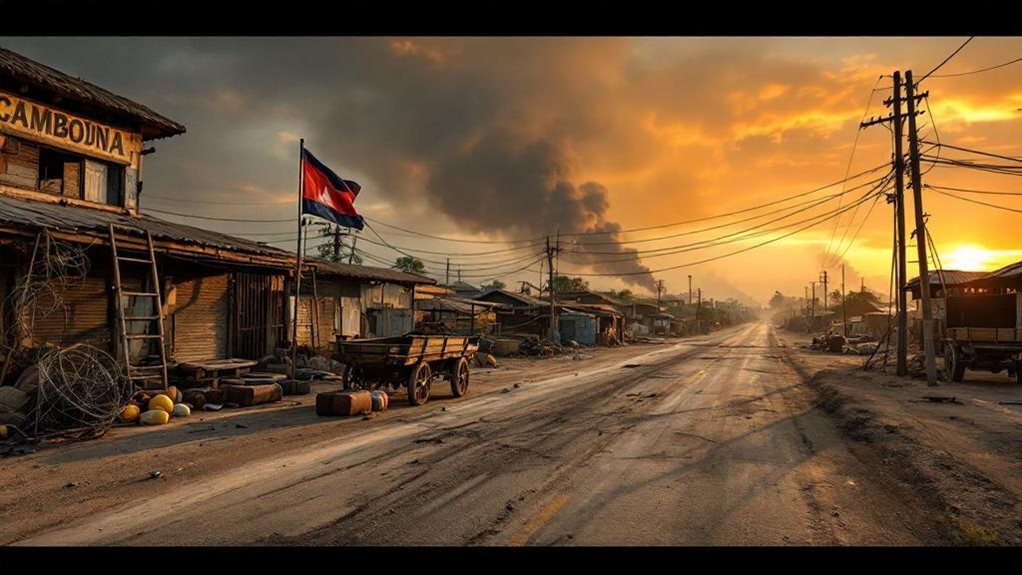The Thai-Cambodian border has become dangerously volatile due to escalating military tensions and ongoing armed conflict. Since May 2025, there have been multiple violent exchanges resulting in casualties, including civilians. The border’s closure and martial law declaration exacerbate the risks, with increased military presence and restricted movement. Unexploded ordnance further endangers the area, especially near tourist sites. These developments have severely disrupted travel and trade, underscoring the necessity for travelers to remain informed about potential dangers and restrictions.
Amid escalating tensions between Thailand and Cambodia, the Thai-Cambodian border has become a focal point of significant security concerns, following the declaration of martial law in several Thai border districts on July 25, 2025. This development grants local authorities expanded powers, including the imposition of curfews and movement restrictions, as well as an enhanced military presence. Travelers must adhere to all instructions from authorities, which may include evacuation orders. Crossings can close without notice, and travel is permitted only through designated points with proper documentation.
The situation has been further complicated by ongoing armed conflict stemming from a border dispute that has intensified since May 28, 2025. Exchanges of fire, including rocket and artillery attacks, have been reported between Thai and Cambodian forces, resulting in at least 33 confirmed deaths by July 26, including civilians and military personnel. Additionally, over 46 individuals have been injured. The front line has expanded across western Cambodia and eastern Thailand, heightening the risk in these regions. The security environment at the Thailand-Cambodia border is volatile due to the ongoing conflict, leading to unpredictable situations for travelers.
Intensified border dispute leads to deadly exchanges between Thai and Cambodian forces, claiming multiple lives.
The entire 817 km land border between Thailand and Cambodia has been closed since the fighting began, severely impacting all land travel between the two nations. Several countries and foreign ministries have issued travel warnings or elevated advisories for border areas, advising travelers to cancel or postpone trips to the affected provinces. In a related development, the Korean government has raised travel advisory levels for affected regions, urging nationals to prioritize safety. While flights remain operational, travel near the border is deemed unsafe due to the volatile situation.
The presence of unexploded land mines and explosive remnants in disputed regions poses a high risk, particularly near temples and tourist sites in the border zone, such as the Khao Phra Wihan/Preah Vihear Temple. Mine clearance efforts have been hindered by the ongoing conflict, contributing to increased travel danger and movement disruption. Travel advisories have been updated by multiple countries, reflecting the escalating security risks and unpredictable nature of the situation.
Meanwhile, local infrastructure and tourism have been severely impacted, with tourist destinations and historical sites near the border temporarily closed for safety. Movement restrictions have disrupted local economies reliant on cross-border tourism and trade, leading to cancellations and revenue losses for travel operators and businesses.









